The Norris and Margery Bendetson EPIIC International Symposium
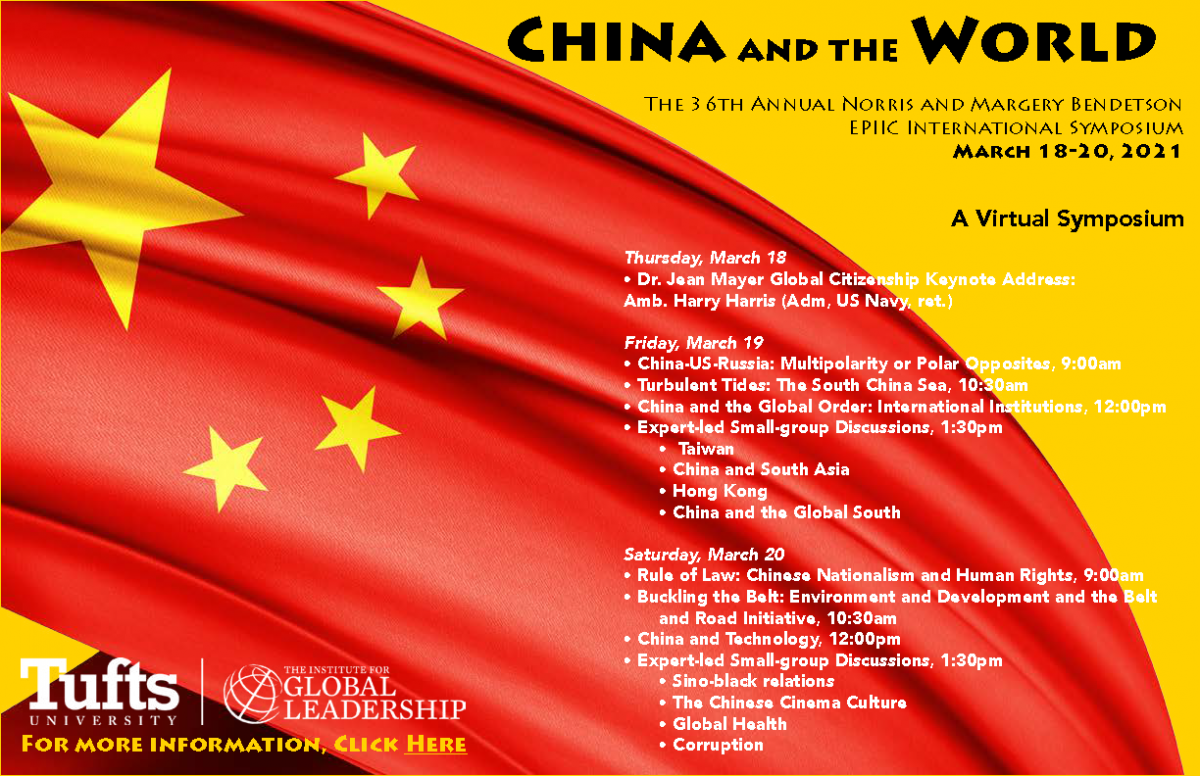
The 36th Annual Norris and Margery Bendetson EPIIC International Symposium
March 18-20, 2021
The international symposium is an annual public forum designed and enacted by EPIIC students. It features international practitioners, academics, public intellectuals, activists and journalists who come to Tufts each year for three days of discussion and debate in panels and small-group discussions determined by students in the EPIIC course. Students who conduct research projects also have the opportunity to present alongside the invited experts.
The Boston Globe made this assessment of the EPIIC Symposium:
"At a time when the national discourse seems forever reduced to its lowest common denominator…to sound bites and slogans…EPIIC is a refreshing antidote. Far from looking to simplify the world, the symposium aims to teach students to view life in a way that respects complex human systems."
Read the TuftsNow Article about #EPIIC2020 Symposium
Genocide and mass atrocities are “a direct assault on universal human values,” says Williams. Atrocities force the persecuted to flee their homelands, increasing “humanitarian need, which stretches the capacities and resources of nations, of international organizations, of aid agencies, and NGOs.”
Symposium Schedule
Thursday, March 18
|
10:00am (EDT) |
Welcome: Dr. Nadine Aubry, Provost, Tufts University Introduction: Dr. Abi Williams, Director, Institute for Global Leadership, and Professor of the Practice of International Politics, The Fletcher School of Law and Diplomacy Dr. Jean Mayer Global Citizenship Award Keynote address: Ambassador Harry Harris, the outgoing U.S. Ambassador to the Republic of Korea and four-star Admiral and Commander of PACOM
|
Friday, March 19
|
9:00am (EDT) |
China-US-Russia: Multipolarity or Polar Opposites?
|
|
10:30am (EDT) |
Turbulent Tides: The South China Sea
|
|
12:00pm (EDT) |
China and the Global Order: International Institutions
|
|
1:30pm (EDT) |
Expert-led Small-group Discussions
|
Saturday, March 20
|
9:00am(EDT) |
Rule of Law: Chinese Nationalism and Human Rights
|
|
|
10:30am(EDT) |
Buckling the Belt: Environment and Development and the Belt and Road Initiative
|
|
|
12:00pm (EDT) |
Transformative Technology: China's Leap into the Future
|
|
|
1:30pm (EDT) |
Expert-led Small-group Discussions Moderator: Gwen Mecsas, EPIIC Colloquium
|
Participants to Date:
Dr. Jean Mayer Global Citizenship Keynote Address
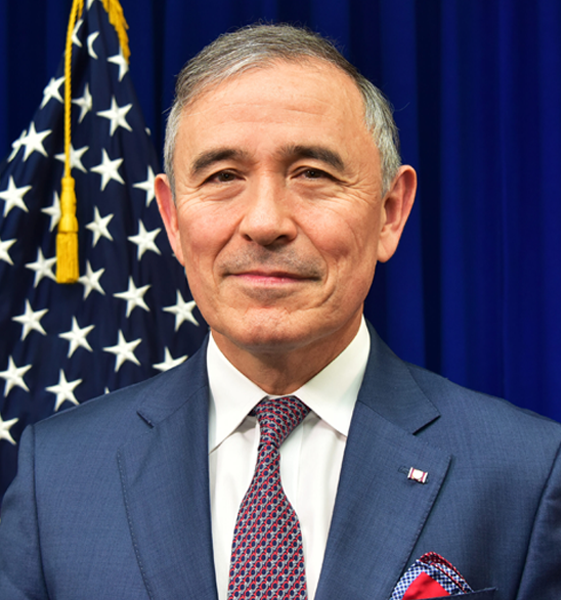 Ambassador Harry Harris
Ambassador Harry Harris
Amb. Harry Harris (Adm, ret. U.S. Navy) is the former U.S. Ambassador to South Korea and the former Commander of the U.S. Pacific Command. Adm. Harry Harris was born in Japan and reared in Crossville, Tennessee and Pensacola, Florida.
Designated as a naval flight officer (NFO) in 1979, his first assignment was Patrol Squadron (VP) 44. Subsequent operational tours included tactical action officer aboard USS Saratoga, operations officer in VP-4, three tours with Patrol and Reconnaissance Wing 1, director of operations for U.S. 5th Fleet, and director of operations for U.S. Southern Command. Harris commanded VP-46, Patrol and Reconnaissance Wing 1, Joint Task Force-Guantanamo, the U.S. 6th Fleet, Striking and Support Forces NATO, and the U.S. Pacific Fleet.
Harris served in every geographic combatant command region and participated in the following major operations: Achille Lauro terrorist hijacking incident, Attain Document III, Earnest Will, Desert Shield/Desert Storm, Southern Watch, Enduring Freedom, Iraqi Freedom, Willing Spirit, and Odyssey Dawn.
Harris’ staff assignments included aide to Commander, U.S. Naval Forces Japan; speechwriter for the chairman of the Joint Chiefs of Staff (CJCS); three tours on the Navy staff, including Deputy CNO for Communication Networks (OPNAV N6); assistant to the CJCS where he was the chairman’s direct representative to the secretary of state and the U.S. roadmap monitor for the Mid-East Peace Process.
In October 2013, Harris was promoted to admiral and assumed command of the U.S. Pacific Fleet. Harris assumed command of U.S. Pacific Command (USPACOM) May 27, 2015, the 24th commander since USPACOM was established Jan. 1, 1947.
Harris has logged 4,400 flight hours, including more than 400 combat hours, in maritime patrol and reconnaissance aircraft -- he is the first Navy flyer from this community to achieve 4-star rank. His personal decorations include the Defense Distinguished Service Medal, Distinguished Service Medal (two awards), Defense Superior Service Medal (three awards), Legion of Merit (three awards), the Bronze Star (two awards), the Air Medal (one strike/flight), and the State Department’s Distinguished Honor Award. He was awarded the Tong-il medal by the Republic of Korea in 2014 and the Pingat Jasa Gemilang (Tentera) by the Republic of Singapore in 2017.
He received the Navy League’s Stephen Decatur Award, the CIA’s Agency Seal Medal, the Ellis Island Medal of Honor, the Asian Pacific American Institute for Congressional Studies Lifetime Achievement Award, the Who's Who in Asian American Communities Alliance Foundation Community Spirit Award, and the Asian American Government Executives Network Distinguished Lifetime Achievement Award. Prior to his retirement, Harris was the Navy’s “Gray Owl,” the NFO who had held this designation for the longest period, and the “Old Goat,” the longest-serving Naval Academy graduate still on active duty.
Panelists and Discussion Leaders
Anthony Clark Arend
Anthony Clark Arend is Professor of Government and Foreign Service and Chair of the Department of Government . He served as Senior Associate Dean for Graduate and Faculty Affairs (later Vice Dean) in the Walsh School of Foreign Service from August 2015 until July 2018. He served as Director of the Master of Science in Foreign Service Program from 2008-2017. His research and teaching is in the fields of international law, national security law, international legal theory, and human rights. He has published seven books, including Legal Rules and International Society, International Law and the Use of Military Force (co-authored), and Human Dignity and the Future of Global Institutions (co-edited). With Professor Christopher C. Joyner, he founded the Institute for International Law & Politics at Georgetown and served as co-director of the Institute from 2003-2008. His is a University Affiliate at the Center for National Security and the Law at the Georgetown University Law Center and has also served as an adjunct professor of law. He serves as a Faculty Liaison to the Georgetown Institute for Politics and Public Service. He has served as Chair of the Main Campus Executive Faculty and Vice President of the Faculty Senate for the Main Campus. Prior to coming to Georgetown, he was a Senior Fellow at the Center for National Security Law at the University of Virginia School of Law. He has also served as an Articles Editor for the Virginia Journal of International Law. Dr. Arend is a Life Member of the Council on Foreign Relations and serves as a Senator on the Board of Governors of the Georgetown University Alumni Association. In April 2017, Arend received the John Carroll Award from the Georgetown University Alumni Association. This award ‘’is conferred upon Georgetown alumni whose achievements and record of service exemplify the ideals and traditions of Georgetown and its founder’’ and is the highest honor given by the Alumni Association. Dr. Arend received a Ph.D. and an M.A. in Foreign Affairs from the Department of Government and Foreign Affairs of the University of Virginia. He received a B.S.F.S., magna cum laude, from the Edmund A. Walsh School of Foreign Service at Georgetown University.
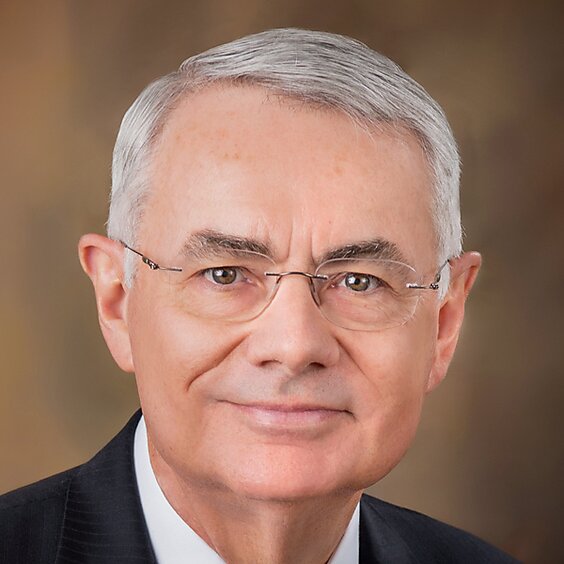 James Bacchus
James Bacchus
James Bacchus is a member of the Herbert A. Stiefel Center for Trade Policy Studies, the Distinguished University Professor of Global Affairs and Director of the Center for Global Economic and Environmental Opportunity at the University of Central Florida. He was a founding judge and was twice the Chairman — the chief judge — of the highest court of world trade, the Appellate Body of the World Trade Organization in Geneva, Switzerland. He is a former Member of the Congress of the United States, from Florida, and also a former international trade negotiator for the United States. He is a Global Fellow of the Centre for International Governance Innovation in Canada, and an Adjunct Scholar of the Cato Institute in Washington, D.C. He served on the High‐Level Advisory Panel to the Conference of Parties of the United Nations Framework Convention on Climate Change, chaired the global Commission on Trade and Investment Policy of the International Chamber of Commerce, chaired the global sustainability council of the World Economic Forum, and is a member of the Advisory Board for the United States chapter of the United Nations Sustainable Development Solutions Network. He is the Pao Yue‐Kong Chair Professor at Zhejiang University in Hangzhou, China. For more than fourteen years, he chaired the global practice of the largest law firm in the United States and one of the largest in the world. He is the author of the books Trade and Freedom, published by Cameron May in London in 2004, and The Willing World: Shaping and Sharing a Sustainable Global Prosperity, published by Cambridge University Press in 2018. The Financial Times named The Willing World one of the “Best Books of 2018.” He is a frequent writer in leading publications and a frequent speaker on prominent platforms worldwide.
 Michael Berry
Michael Berry
Michael Berry’s areas of research include modern and contemporary Chinese literature, Chinese cinema, popular culture in modern China, and literary translation. Berry’s approach is transnational and his work addresses the richness and diversity of Chinese art and culture as it has manifested itself in mainland China, Taiwan, Hong Kong, and other Sinophone communities. After earning a PhD in East Asian Languages & Cultures at Columbia University, Berry taught at UCSB for 13 years before joining UCLA in 2016. He is the Director of the UCLA Center for Chinese Studies. He also holds an affiliate appointment with the UCLA Department of Film, Television and Digital Media.
 Rishikesh Ram Bhandary
Rishikesh Ram Bhandary
Rishikesh Ram Bhandary is a post-doctoral scholar at the Climate Policy Lab at Tufts University. He is an expert on climate finance and international climate negotiations. His research focuses on how developing countries mobilize finance from different international sources. His current work revolves around the deployment of renewable energy through the Belt and Road Initiative. He has extensive experience engaging with the climate negotiations in various capacities and has helped to train negotiators from the Least Developed Countries and the Climate Vulnerable Forum. He has been a contributing author and chapter scientist in the Intergovernmental Panel on Climate Change’s Fifth Assessment Report. He was an Aspen-Avantha fellow at the Aspen Institute in New Delhi and a fellow at the Program on Negotiation at Harvard Law School. He serves on the editorial board of Global Policy: Next Generation.
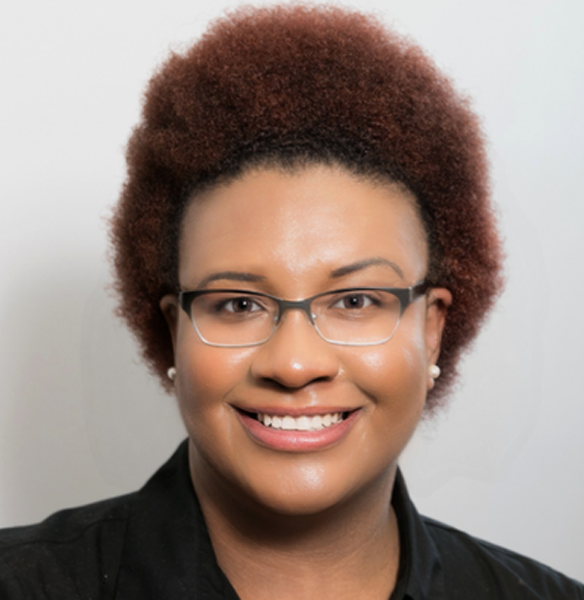 Keisha A. Brown
Keisha A. Brown
Keisha A. Brown is an assistant professor of history at Tennessee State University in the Department of History, Political Science, Geography, and Africana Studies. She graduated with her bachelor’s degree from the University of Notre Dame, earned her doctorate from the University of Southern California, and was a 2018–2019 postdoctoral fellow at the James Weldon Johnson Institute for the Study of Race and Difference at Emory University. Dr. Brown is an Asian studies scholar with a regional focus on East Asia specializing in modern Chinese history. Her research and teaching interests include comparative East Asian histories, postcolonial theory, transnational studies, world history, and race and ethnic studies. Dr. Brown’s research examines networks of difference in China used to understand the Black foreign other through an investigation of the social and political context that African Americans navigated and negotiated during their time in Maoist China. Her publication, Blackness in Exile: W.E.B. Du Bois’ Role in the Formation of Representations of Blackness as Conceptualized by the Chinese Communist Party (CCP), analyzes W.E.B. Du Bois’ performativity of race in China. Dr. Brown is currently extending her research on Sino-African American transnational relations to examine ideas of race and ethnicity and Afro-Asian diasporic connections, as evidenced by her blog post, “Teaching China through Black History” (Harvard University Fairbank Center), and essay, “Bridging the Gap: Blackness and Sino-African Relations” (International Institute for Asian Studies). In 2020, she co-founded the Black China Caucus, a non-profit collaborative effort that curates resources aimed at encouraging the professional development and advancement of Black professionals who specialize in China.
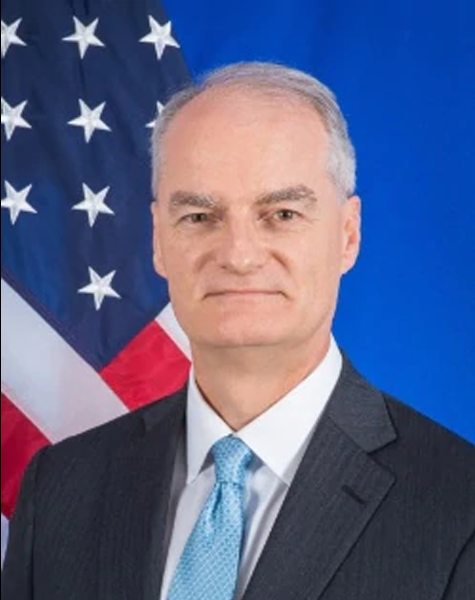 Hugh Dugan
Hugh Dugan
Hugh Dugan developed a distinguished career in diplomatic representation, negotiation, and corporate governance. Mr. Dugan is an international affairs scholar and an expert on United States participation in the United Nations Organization. He served in the US Diplomatic Corps from 1983 to mid 2015 as senior adviser to eleven US Permanent Representatives to the United Nations and as US Delegate to the United Nations. Since 1989, he worked among the UN’s 193 Member States and its Secretariat in New York and Geneva. He managed a broad range of matters enabling effective, strategic US participation at the United Nations. This led to his collaboration with senior US Congressional figures, together spearheading UN institutional and managerial modernization leading to historic Helms-Biden legislation releasing the payment of $1 billion in US arrears to the UN budget. Mr. Dugan served as the lead negotiator on many US Delegations to the UN, such as to the UN’s Peacebuilding Commission, Economic and Social Council, and Committee on Non-Governmental Organizations. He coordinated the US Delegation to many sessions of the General Assembly and of the Economic and Social Council and served as the US senior expert for elections to UN membership bodies. Through expert assessment and management of international political dynamics as played out at the United Nations, Mr. Dugan initiated and negotiated many significant UN agreements, such as normative, technical, and operational items within the evolution of North-South relations. He championed UN measures in support of the private sector’s role in corporate social responsibility, advocated for a new partnership for African development, advised on the selection of the Secretary-General, and advanced the UN’s program of sport for development and peace, among many other issues. The US Department of State honored his performance with five commendations during his thirty-two year career. Mr. Dugan currently serves as Thomas J. and Ruth Sharkey Visiting Scholar on UN Studies at the School of Diplomacy and International Relations, Seton Hall University where he is a professor on UN Reform and UN Security Council Issues. He is a contributor on FOX News and China’s CCTV on international topics. He received his MALD from The Fletcher School of Law and Diploomacy at Tufts.
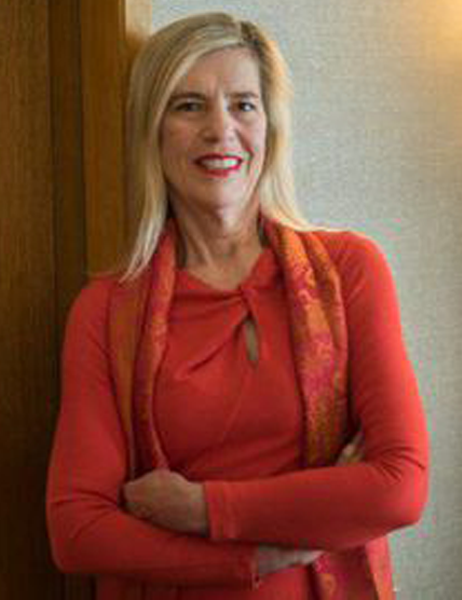 Rebecca Fannin
Rebecca Fannin
Rebecca A. Fannin is a leading expert on global innovation. As a technology writer, author and media entrepreneur, she began her career as a journalist covering venture capital from Silicon Valley. Following the VC money, she became one of the first American journalists to write about China's entrepreneurial boom, reporting from Beijing, Shanghai and Hong Kong. Today, Rebecca pens a weekly column for Forbes, and is a special correspondent for CNBC.com. Rebecca's journalistic career has taken her to the world's leading hubs of tech innovation, and her articles have appeared in Harvard Business Review, Fast Company, Inc. and Forbes, where she was a columnist for 10 years. Rebecca's first book, Silicon Dragon: How China is Winning the Tech Race, profiled Jack Ma of Alibaba and Robin Li of Baidu, and she has followed these Chinese tech titans ever since. Her second book, Startup Asia, explored how India is the next up and comer, which again predicted a leading-edge trend. Her new book, Tech Titans of China, is published by Hachette Book Group. Inspired by the entrepreneurs she met and interviewed in China, Rebecca became a media entrepreneur herself. In 2010, she formed media and events platform Silicon Dragon Ventures, which publishes a weekly e-newsletter, produces videos and podcasts, and programs and produces events annually in innovation hubs globally.
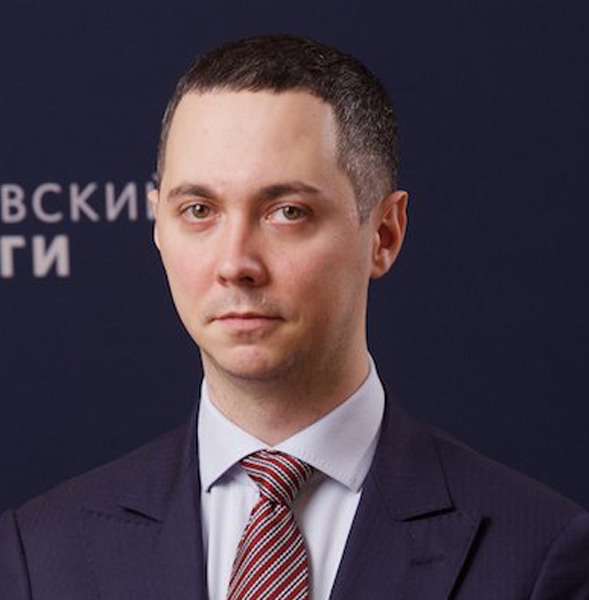 Alexander Gabuev
Alexander Gabuev
Alexander Gabuev is a senior fellow and the chair of the Russia in the Asia-Pacific Program at the Carnegie Moscow Center of the Carnegie Endowment for International Peace. His research is focused on Russia’s policy toward East and Southeast Asia, political and ideological trends in China, and China’s relations with its neighbors—especially those in Central Asia. Prior to joining Carnegie, Gabuev was a member of the editorial board of Kommersant publishing house and served as deputy editor in chief of Kommersant-Vlast, one of Russia’s most influential newsweeklies. Gabuev started his career at Kommersant in 2007, working as a senior diplomatic reporter, as a member of then president Dmitry Medvedev’s press corps, and as deputy foreign editor for Kommersant. His reporting covered Russia’s relations with Asian powers and the connection between Russian business interests and foreign policy. Gabuev has previously worked as a nonresident visiting research fellow at the European Council on Foreign Relations (ECFR) and taught courses on Chinese energy policy and political culture at Moscow State University. In April-June 2018, Gabuev was a visiting scholar at Fudan University (Shanghai, China), and was teaching courses on Sino-Russian relations. Gabuev is a Munich Young Leader of Munich International Security Conference and a member of Council on Foreign and Defense Policy (Russia).
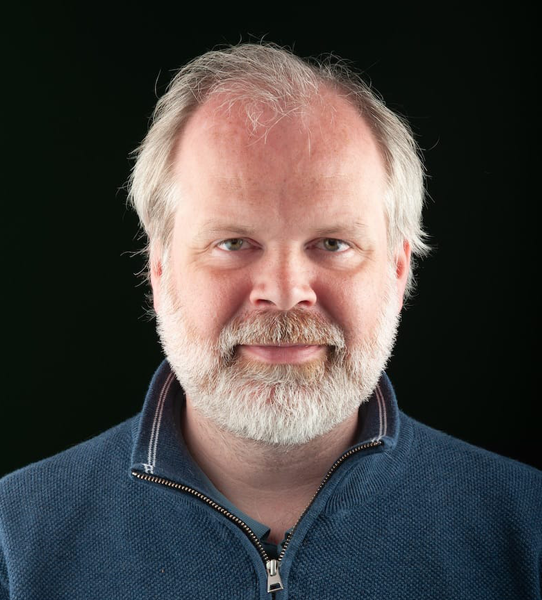 Richard Gowan
Richard Gowan
Richard Gowan is the UN Director for the International Crisis Group. He oversees Crisis Group's advocacy work at the United Nations, liaising with diplomats and UN officials in New York. Gowan was previously a Consulting Analyst with ICG in 2016 and 2017. He has worked with the European Council on Foreign Relations, New York University Center on International Cooperation and the Foreign Policy Centre (London). He has taught at the School of International and Public Affairs at Columbia University and Stanford in New York. He has also worked as a consultant for organizations including UN Department of Political Affairs, the UN Office of the Special Representative of the Secretary-General on International Migration, the United States Holocaust Memorial Museum, Rasmussen Global, the UK Foreign and Commonwealth Office, the Finnish Ministry for Foreign Affairs and Global Affairs Canada. From 2013 to 2019, he wrote a weekly column ("Diplomatic Fallout") for World Politics Review.
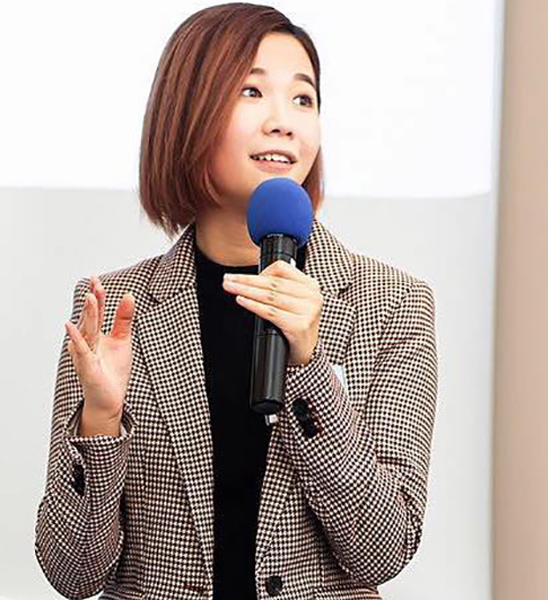 Glacier Kwong
Glacier Kwong
Glacier Kwong is a political and digital rights activist born and raised in Hong Kong. She is now pursuing her PhD in Law in the University of Hamburg, where her research focuses on data protection, surveillance in Hong Kong and in China. She has been an active political activist in Hong Kong since 2012 and has written in press and media, commenting on political and digital rights issues in Hong Kong. She is now regularly writing for Apple Daily in Hong Kong, and Welt am Sonntag in Germany as a columnist. Glacier attended the "Umbrella Revolution" in autumn of 2014, where she recorded a short video calling for international assistance and uploaded it to social media, where the video clip gathered over a million views. She also supported the movement Youngspiration that was created after the end of the Umbrella Revolution to fight for seats in Legislation Council's elections. Glacier founded Keyboard Frontline, where she advocates for human rights on the Web and travelled with Joshua Wong to find support for the Hong Kong pro-democracy movement as well as explain the causes of massive demonstrations in Hong Kong in 2019. She said in a press conference in Berlin that she asked German and European Union governments to stop supplying police equipment to Hong Kong because all have to observe human rights.
Prateek Joshi
Prateek Joshi is pursuing his doctorate in philosophy from St Antony's College, University of Oxford, where his research centers on the intellectual history of India’s foreign policy.
 Margaret Lewis
Margaret Lewis
Margaret Lewis is Professor of Law at Seton Hall Law School. Lewis’s research focuses on law in China and Taiwan with an emphasis on criminal justice and human rights. Professor Lewis has been a Fulbright Senior Scholar at National Taiwan University, a visiting professor at Academia Sinica, a Public Intellectuals Program Fellow with the National Committee on United States-China Relations, and a delegate to the US-Japan Foundation's US-Japan Leadership Program. She is a Member of the Council on Foreign Relations. Her publications have appeared in a number of academic journals including the Columbia Journal of Transnational Law, NYU Journal of International Law and Politics, Vanderbilt Journal of Transnational Law, and Virginia Journal of International Law. She also co-authored the book Challenge to China: How Taiwan Abolished its Version of Re-Education Through Labor with Jerome A. Cohen. Professor Lewis has participated in the State Department’s Legal Experts Dialogue with China, has testified before the Congressional-Executive Commission on China, and is a consultant to the Ford Foundation. Before joining Seton Hall, Professor Lewis served as a Senior Research Fellow at NYU School of Law’s U.S.-Asia Law Institute where she worked on criminal justice reforms in China. Following graduation from law school, she worked as an associate at the law firm of Cleary, Gottlieb, Steen & Hamilton in New York City. She then served as a law clerk for the Honorable M. Margaret McKeown of the U.S. Court of Appeals for the Ninth Circuit in San Diego. After clerking, she returned to NYU School of Law and was awarded a Furman Fellowship.
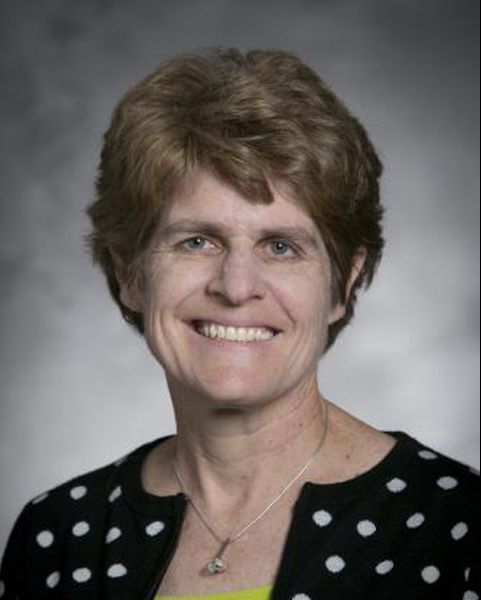 Elizabeth Losos
Elizabeth Losos
Elizabeth Losos is a senior fellow at the Nicholas Institute. She is currently exploring how to plan for and optimize the environmental impact of infrastructure expansion in Asia, Africa, and Europe that is stimulated by China’s new silk road initiative. Losos formerly was president and CEO of the Organization for Tropical Studies (OTS), a global consortium of universities and research institutes with the mission of promoting education, research, and the responsible use of natural resources in the tropics. Losos directed the organization’s four research stations in Costa Rica and South Africa as well as undergraduate, graduate, and professional field-based educational programs in tropical biology, conservation, global health, and environmental policy. Prior to her tenure with OTS, Losos was the director of the Smithsonian Institution’s Center for Tropical Forest Science, a global network of large-scale forest demography plots.
Karmen Lucero
Karman Lucero is a Fellow at Yale University’s Paul Tsai China Center, which he joined in July 2018, after working for the Data & Society Research Institute and Microsoft’s US Government Affairs Office, where he focused on issues related to artificial intelligence law and policy, telecom law and policy, and criminal justice reform. He received a J.D. from Columbia Law School, where he was a Harlan Fiske Stone Scholar and Editor-In-Chief of the Columbia Journal of Asian Law. As a law student, he studied Chinese administrative and judicial reform at Peking University, interned with the US Treasury’s Office of Foreign Assets Control and the Defense Team of Nuon Chea at the United Nations Assistance to the Khmer Rouge Trials, and also worked for a group of human rights lawyers in Nepal during the drafting of Nepal’s new Constitution. Prior to law school, he was a Teaching Fellow in Manghuai Township in Yunnan with Teach for China. Karman speaks and reads Mandarin Chinese.
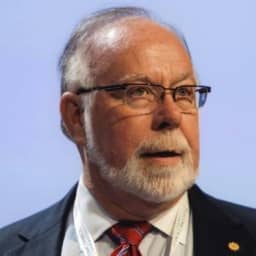 Richard Marshall, ESQ.
Richard Marshall, ESQ.
Dr. Marshall offers 25 plus years of broad executive leadership experience as a former member of the Senior Executive Service in the federal government, having served in the Department of Defense, National Security Agency (legal architect of nation’s first cyber warfare exercise), the White House (Comprehensive National Cyber Security Initiative), the Department of Commerce (Critical Infrastructure Assurance Office), and the Department of Homeland Security (Director of Global Cyber Security Management). Since retiring from the federal government, he has broadened his executive experience by serving on various boards of directors, CEO of tech startups, Executive Director of a non-profit research center, and Special Cyber Advisor to the government of Moldova. He currently serves as Founder and Chairman of the Board of CinturionGroup, a global provider of international fiber optic cable communications systems and services delivering high-reliability and high-capacity solutions via the next generation of fiber optic networks. Current project is connecting Europe to India and Singapore through Israel, Jordan, and Saudi Arabia. He has also been an Advisory Board Member of Eclypses, whose industry leading cybersecurity software, MicroToken Exchange enables clients to protect their most sensitive data from exploitation and compromise by threat actors, and a Board Member of the International Cyber Security Advisory Dialogue Board: A woman owned and directed think tank that seeks to bring security technologies and national policy makers together to bridge their communications gap, among many others.
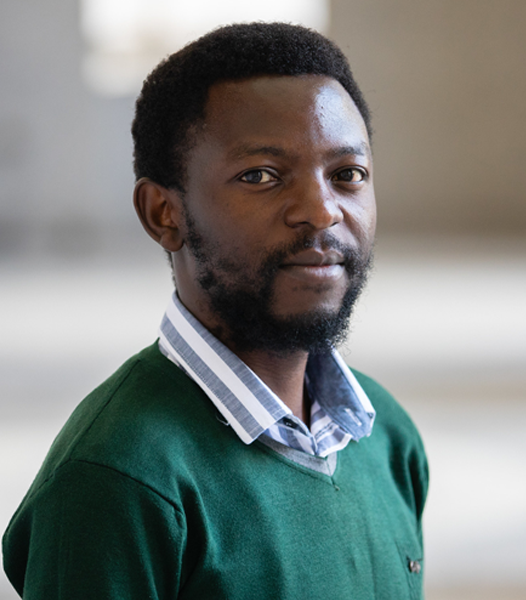 Emmanuel Matambo
Emmanuel Matambo
Emmanuel Matambo is a Visiting Research Fellow at the Centre for Africa-China Studies at the University of Johannessburg. The Centre is a joint initiative of the University of Johannesburg and Nanjing Tech University. Matambo began his tertiary experience at St Joseph’s Theological Institute in 2009 and graduated with a Bachelor of Arts degree (magna cum laude) in philosophy in 2011. He later went to the University of KwaZulu-Natal for an honours degree in political science. He graduated (summa cum laude) in 2014. His dissertation for a Master of Social Science degree was based on China-South Africa relations. His doctorate dissertation, also done at the University of KwaZulu-Natal, was a constructivist analysis of Sino-Zambian relations. While he has published academic articles on a range of topics from conflict resolution, contemporary terrorism, educational theory and African agency, his main interest is on the growing China-Africa relationship.
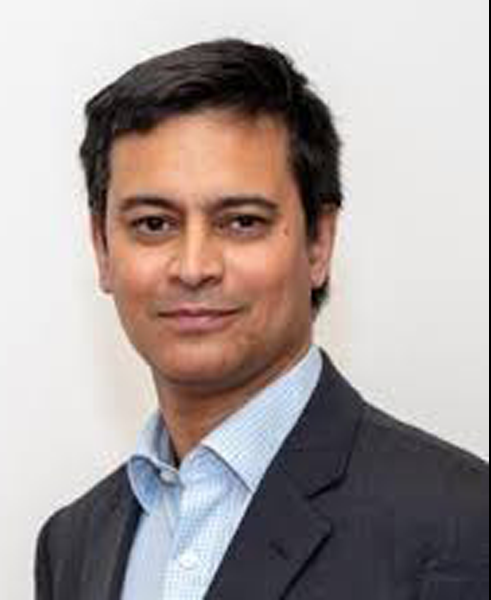 Rana Mitter
Rana Mitter
Rana Mitter is Professor of the History and Politics of Modern China at St Cross College at Oxford University. He works on the emergence of nationalism in modern China, both in the early twentieth century and in the present era. He is Director of the University China Centre and the author of several books, including Modern China: A Very Short Introduction and the award-winning A Bitter Revolution: China’s Struggle with the Modern World. His most recent book, China’s War with Japan, 1937-45: The Struggle for Survival, was named as a 2013 Book of the Year in the Financial Times and the Economist and won the 2014 RUSI/Duke of Westminster’s Medal for Military Literature. His television documentary “The Longest War: China’s World War II” was broadcast on the History Channel Asia in summer 2015.
 Margaret Myers
Margaret Myers
Margaret Myers is the director of the Asia & Latin America Program at the Inter-American Dialogue. She established the Dialogue’s China and Latin America Working Group in 2011 to examine China’s growing presence in Latin America and the Caribbean. Myers also developed the China-Latin America Finance Database, the only publicly available source of empirical data on Chinese state lending in Latin America, in cooperation with Global China Initiative at Boston University’s Global Development Policy Center. In addition to maintaining the Dialogue’s China and Latin America and 美洲对话 blogs, Myers has published numerous articles on Chinese leadership dynamics, international capital flows, Chinese agricultural policy, and Asia-Latin America relations, among other topics. The Political Economy of China-Latin America Relations and The Changing Currents of Trans-Pacific Integration: China, the TPP, and Beyond, her co-edited volumes with Dr. Carol Wise and Dr. Adrian Hearn, respectively, were published in 2016. Myers has testified before the House Committee on Foreign Affairs on the China-Latin America relationship and is regularly featured in major domestic and international media, including the Economist, Financial Times, New York Times, Wall Street Journal, El Comercio, Folha de São Paulo, CNN en Español, CCTV, and Voice of America. In 2018, she was identified by Global Americans as part of the “new generation of public intellectuals.” Before arriving at the Dialogue, Myers worked as a Latin America analyst and China analyst for the US Department of Defense, during which time she was deployed with the US Navy in support of Partnership of the Americas. Myers also worked as a senior China analyst for Science Applications International Corporation, a consultant for the Inter-American Development Bank, a faculty member at Georgetown University, and for Fauquier County Schools, where she developed the county’s first Mandarin language program.
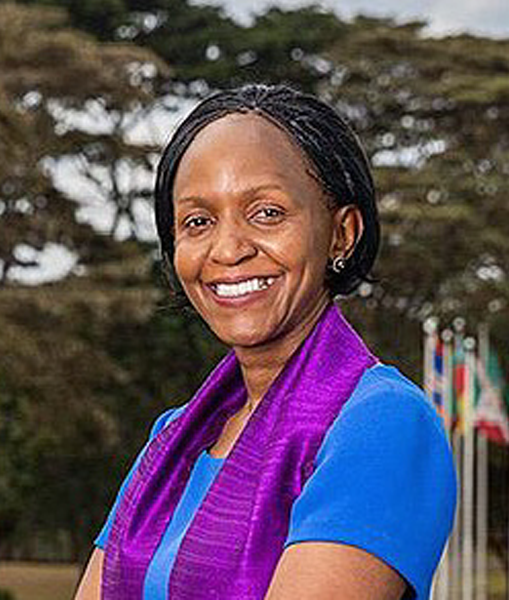 Joyce Msuya
Joyce Msuya
Joyce Msuya is the Deputy Executive Director of UNEP. She was appointed by UN Secretary-General António Guterres in August 2018. Between November 2018 and June 2019, Ms. Msuya served as Acting Executive Director, overseeing UNEP’s portfolio in 33 countries and administering nine Multilateral Environmental Agreements on critical environment issues. Ms. Msuya has more than 20 years of extensive experience in international development strategy, operations, knowledge management and partnerships, across Africa, Asia and Latin America. Prior to joining UNEP, Ms. Msuya served as Adviser to the World Bank’s Vice President, East Asia and Pacific Region in Washington, D.C. From 2014 to 2017, Ms. Msuya served as the inaugural World Bank Special Representative and Head of the World Bank Group Office in the Republic of Korea, where she established and developed office operations and deepened the Bank’s partnership with the country. She has held a series of high-level positions at the World Bank Group, including the World Bank Institute’s East Asia and Pacific Regional Coordinator in China, Principal Strategy Officer at the International Finance Corporation (Manufacturing, Agribusiness and Services) and Special Adviser to Lord Nicholas Stern, World Bank Senior Vice President and Chief Economist. Ms. Msuya has worked across the public and private sectors within the World Bank Group. A microbiologist from Tanzania, Ms. Msuya began her career at the World Bank as a public health specialist for Africa in 1998.
 Elina Noor
Elina Noor
Elina Noor is Director, Political-Security Affairs and Deputy Director, Washington, D.C. Office at the Asia Society Policy Institute. A native of Malaysia, Elina’s work focuses on security developments in Southeast Asia, global governance and technology, and preventing/countering violent extremism. Previously, Elina was Associate Professor at the Daniel K. Inouye Asia-Pacific Center for Security Studies. Prior to that, she was Director, Foreign Policy and Security Studies at the Institute of Strategic and International Studies Malaysia. While there, she also served as the Secretary of the Council for Security Cooperation in the Asia Pacific, a 21-member Track Two regional security network. Between 2017 and 2019, Elina was a member of the Global Commission on the Stability of Cyberspace. She is also on the United Nations Office of Disarmament Affairs’ roster of experts, supporting efforts to build member states’ cyber-related capacity.
Minister Counselor PIAO Yangfan
Minister Counselor Piao Yangfan graduated from the Department of Russian Language and Literature at Peking University, and later studied at the Pushkin State Russian Language Institute in Moscow and Duke University. She joined the Department of Eurasian Affairs of the Chinese Ministry of Foreign Affairs in 1994, and was later posted in the Chinese Embassy in Russia for several years. She served as the Chinese National Coordinator for Shanghai Cooperation Organization, and she is currently serving as Minister Counselor at the Chinese Embassy in the United States.
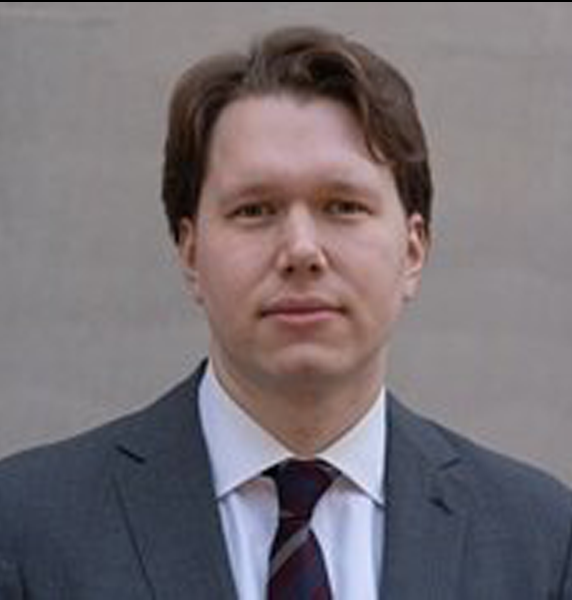 David Sacks
David Sacks
David Sacks is a research fellow at the Council on Foreign Relations, where his work focuses on U.S.-China relations, U.S.-Taiwan relations, Chinese foreign policy, cross-Strait relations, and the political thought of Hans Morgenthau. He was previously the Special Assistant to the President for Research at the Council on Foreign Relations. Prior to joining CFR, Mr. Sacks worked on political military affairs at the American Institute in Taiwan (AIT), which handles the full breadth of the United States’ relationship with Taiwan in the absence of diplomatic ties. Mr. Sacks was also a Princeton in Asia fellow in Hangzhou, China.
Aman Thakker
Aman Thakker is the J.B. and Maurice C. Shapiro Scholar at St. Antony’s College at the University of Oxford and an adjunct fellow with the Wadhwani Chair in U.S.-India Policy Studies at the Center for Strategic and International Studies (CSIS) in Washington, D.C. He is also a contributing author with The Diplomat. Previously, he was a research associate with the Wadhwani Chair at CSIS, where he focused his research on India’s domestic reform agenda and evolving security dynamics in the Indo-Pacific. Aman holds a B.A. in international affairs from the George Washington University.
Lhadon Tethong
Lhadon Tethong is the Director of the Tibetan Action Institute. She is one of the most influential young leaders and recognizable faces in the Tibetan freedom movement and was awarded the first annual James Lawson Award for Nonviolent Achievement by the International Center on Nonviolent Conflict. A Tibetan born in Canada, she served previously as Executive Director of Students for a Free Tibet. Lhadon has traveled the world building a powerful nonviolent movement for Tibet’s freedom and leading innovative economic and political campaigns against China’s rule in Tibet. A visionary strategist, she led the high-profile global campaign to condemn China’s rule of Tibet in the lead-up to and during the 2008 Beijing Olympic Games, making international headlines as she posted real-time accounts of her travels through Beijing as it was preparing for the 2008 Olympics on her blog – one of the first in the Tibetan world – BeijingWideOpen.org, eventually drawing the ire of the Chinese authorities and being detained and deported from China. A renowned spokesperson on Tibetan issues in the media, Lhadon has addressed audiences globally about Tibet’s occupation and movement for freedom.
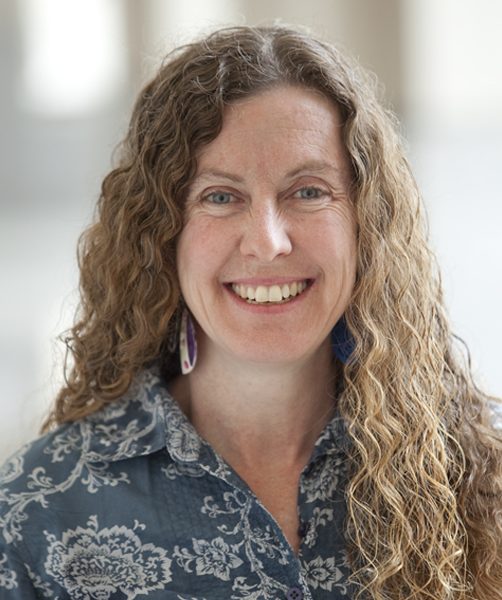 Jennifer Turner
Jennifer Turner
Jennifer Turner has been the director of the China Environment Forum at the Woodrow Wilson Center for 18 years where she creates meetings, exchanges and publications focusing on a variety of energy and environmental challenges facing China, particularly on water, energy and green civil society issues. She leads the Wilson Center’s Global Choke Point Initiative, which together with Circle of Blue, has produced multimedia reports, films, and convening on water-energy-food confrontations in China, India, Mexico, South Africa, and the United States. Other major initiatives include: Cooperative Competitors: Building U.S.-China Clean Energy Partnerships, From Farm to Chopsticks: Food Safety Challenges in China, and Storytelling is Serious Business Workshops For Chinese Environmental Professionals. Jennifer also serves as editor of the Wilson Center’s journal, the China Environment Series and most recently coauthored China’s Water-Energy-Food Roadmap.
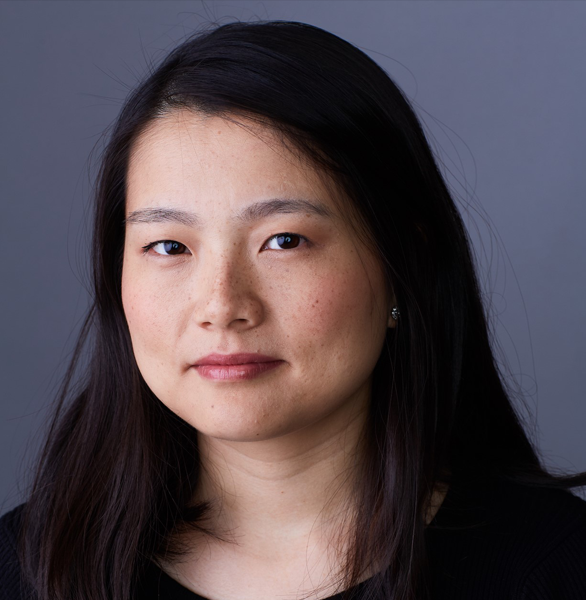 Yaqiu Wang
Yaqiu Wang
Yaqiu Wang is a China researcher at Human Rights Watch, working on issues including internet censorship, freedom of expression, protection of civil society and human rights defenders, and women’s rights. Wang was born and grew up in China, and has a MA degree in International Affairs from George Washington University. Her articles have appeared in Foreign Policy, The Atlantic, The Washington Post, and elsewhere. She has provided commentary to the BBC, CNN, the New York Times and others. Prior to joining Human Rights Watch, Wang worked for the Committee to Protect Journalists.
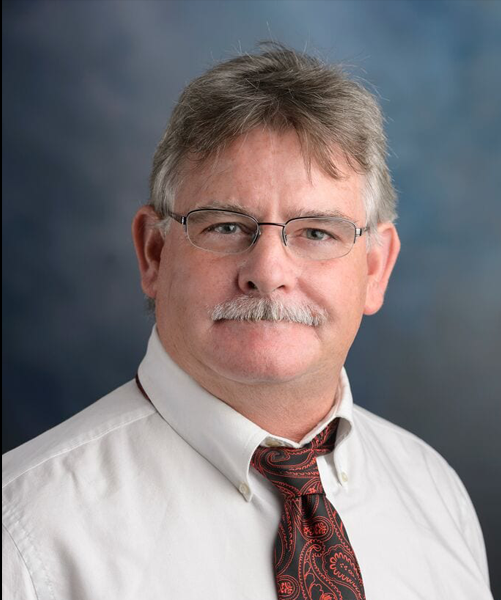 Andrew Wedemen
Andrew Wedemen
Andrew Wedeman received his doctorate in Political Science from the University of California, Los Angeles in 1994 and is currently a Professor of Political Science at Georgia State University, where he heads the China Studies Program. Prior to this appointment, he was a Professor of Political Science at the University of Nebraska-Lincoln, where he also served as the Director of the Asian Studies Program and the Director of the International Studies Program. He has held posts as a visiting a Fulbright Research Professor at Taiwan National University, a Visiting Associate Professor of Political Science at the Johns Hopkins Nanjing University Center for Sino-American Studies, and Research Professor at Beijing University. During 2016-7, he was a Fellow in the Kissinger Institute on China and the United States, Woodrow Wilson Center for International Scholars. His publications include Double Paradox: Rapid Growth and Rising Corruption in China (Cornell); From Mao to Market: Rent Seeking, Local Protectionism, and Marketization in China (Cambridge); numerous articles in academic journals including China Quarterly, Journal of Contemporary China; and China Review; and multiple chapters in numerous edited volumes. He is currently writing a book on China’s anti-corruption struggle entitled Hunting Tigers and Swatting Flies: Xi Jinping’s Battle with Corruption.
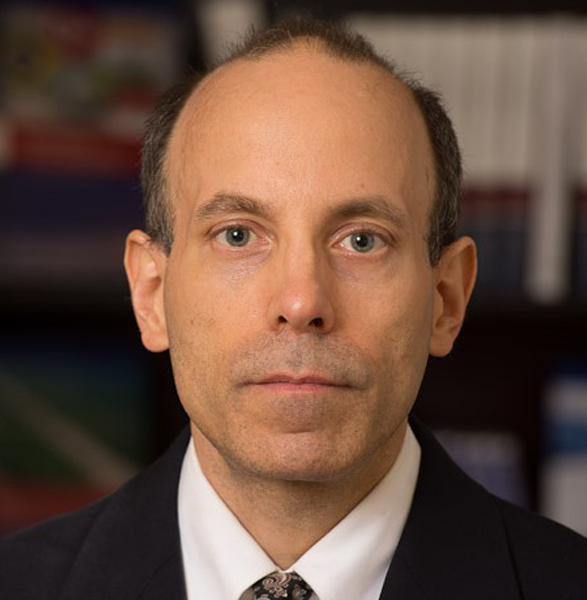 Richard Weitz
Richard Weitz
Richard Weitz is senior fellow and director of the Center for Political-Military Analysis at Hudson Institute. His current research includes regional security developments relating to Europe, Eurasia, and East Asia, as well as U.S. foreign and defense policies. Before joining Hudson in 2005, Dr. Weitz worked at the Institute for Foreign Policy Analysis, the Center for Strategic and International Studies, the Defense Science Board, Harvard University, and the U.S. Department of Defense. Dr. Weitz has authored and edited several books and monographs, including Promoting U.S.-Indian Defense Cooperation (2017); Enhancing the Georgia-U.S. Security Partnership (2016); Parsing Chinese-Russian Military Exercises (2015); China and Afghanistan After the NATO Withdrawal (2015); Reforming U.S. Export Controls Reforms (2015); Turkey’s New Regional Security Role: Implications for the United States (2014); Rebuilding American Military Power in the Pacific (2013); Global Security Watch—China (2013); War and Governance: International Security in a Changing World Order (2011); The Russian Military Today and Tomorrow (2010); Global Security Watch—Russia (2009); China-Russia Security Relations (2008); Mismanaging Mayhem: How Washington Responds to Crisis (2008); The Reserve Policies of Nations (2007); and Revitalising U.S.–Russian Security Cooperation: Practical Measures (2005); and two volumes of National Security Case Studies (Project on National Security Reform, 2012 and 2008). Dr. Weitz has published in such journals as Survival, Jane’s Intelligence Review, Jane’s Islamic Affairs Analyst, Washington Quarterly, National Interest, NATO Review, Global Asia, Arms Control Today, Studies in Conflict and Terrorism, Defense Concepts, Pacific Focus, Journal of Defence Studies, Small Wars Journal, WMD Insights, Parameters: US Army War College Quarterly, Naval War College Review, World Affairs, Political Science Quarterly, Journal of Strategic Studies, and Yale Journal of International Affairs. Dr. Weitz is a frequent contributor to leading print and online publications and appears frequently on television. He has delivered numerous presentations at conferences, panels, and other events in many countries.
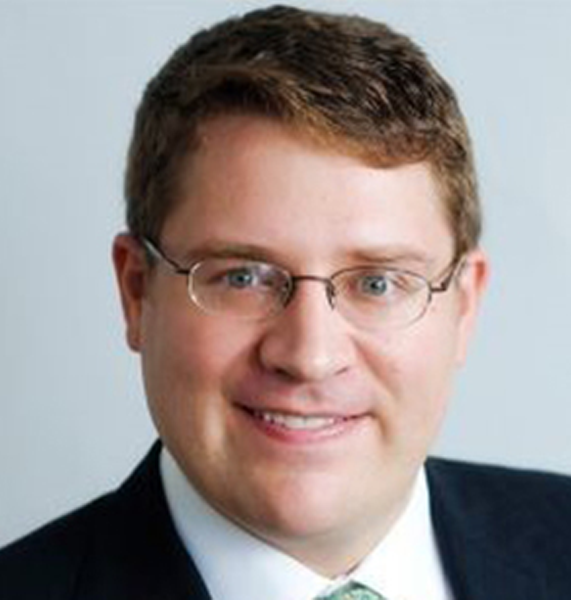 Rockford Weitz
Rockford Weitz
Rockford Weitz is professor of practice, entrepreneur coach, and director of the Maritime Studies Program at The Fletcher School of Tufts University. He also serves as president of the Institute for Global Maritime Studies Inc., a 501(c)(3) non-profit seeking practical solutions to global maritime challenges, and president & CEO at Rhumb Line International LLC, a consultancy providing strategic advice to entrepreneurs and startups. In 2014, Rockford served as founding executive director at FinTech Sandbox Inc. From 2008 to 2013, he served as founding CEO at CargoMetrics, leading the effort to build a VC-backed financial technology business that started in his Cambridge apartment. Prior to co-founding CargoMetrics, he was a senior fellow at the Institute for Global Maritime Studies, a team leader of Fletcher's Abu Dhabi Project, a fellow at Fletcher's Maritime Studies Program, and a fellow at Fletcher's Jebsen Center for Counter-Terrorism Studies. He has taught courses in jurisprudence, maritime security, and global maritime affairs at The Fletcher School, and published op-eds in The New York Times, The Christian Science Monitor, and The Straits Times (Singapore), among others.
